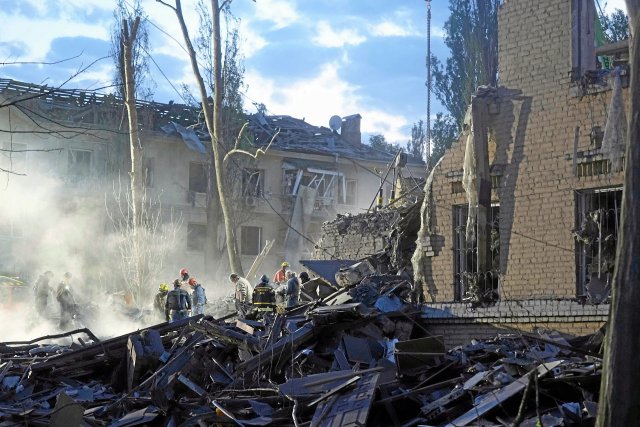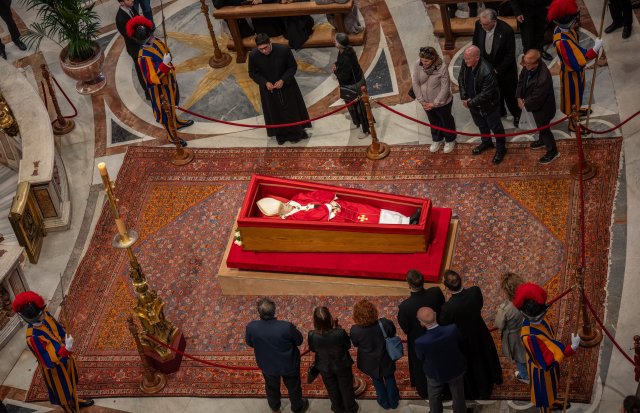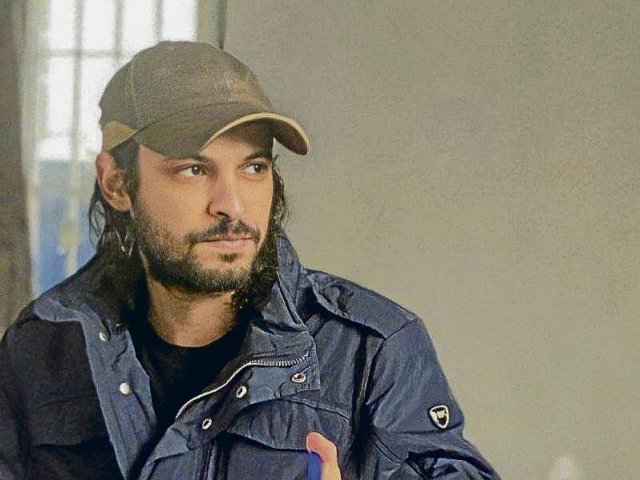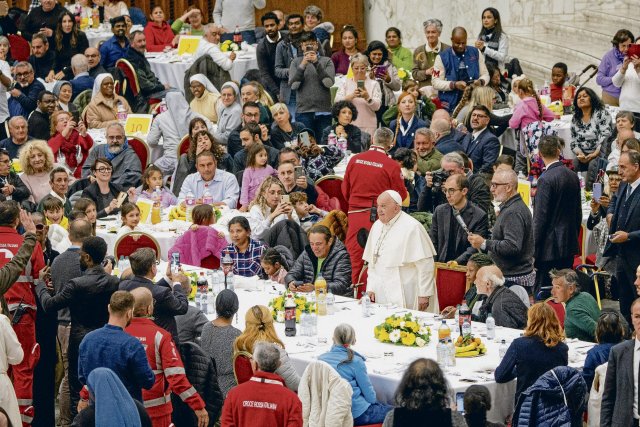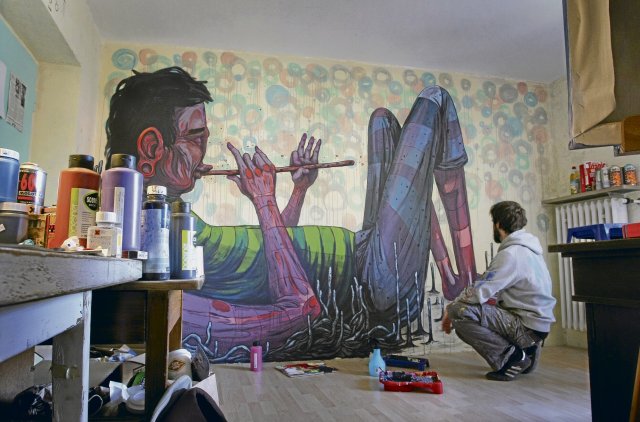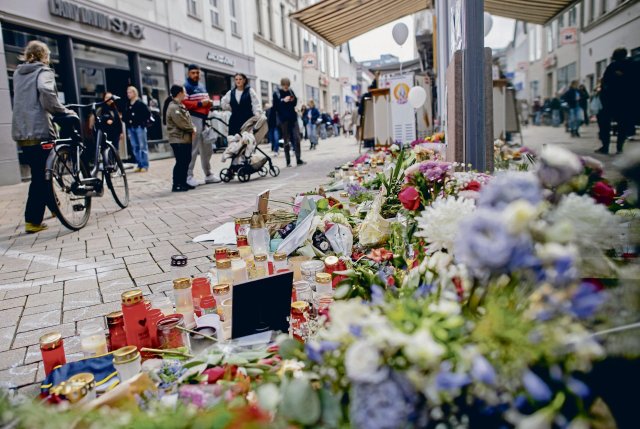»Unvereinbar mit europäischen Werten«
Offener Brief von kroatischen und internationalen Intellektuellen gegen geschichtsrevisionistische Politik der Regierung in Zagreb / Absetzung des Kulturministers gefordert
Der politische Rechtsruck in Europa manifestiert sich vor allem im östlichen Mitteleuropa, aber nicht nur dort, in Regierungspolitiken, die nicht nur in teilweise rasender Geschwindigkeit die Verhältnisse ändern möchte – beispielhaft zu sehen in Polen, wo die mit absoluter Mehrheit regierende rechtskonservative PiS-Regierung staatliche Medien »auf Linie« bringen möchte und gegen das Verfassungsgericht schießt.
Dort, in Ungarn und, hier weniger beachtet, auch in Kroatien ist daneben auch folgendes zu beobachten: Neben radikaler Änderung der bestehenden Verhältnisse geht diese Politik auch immer mit bestimmten Deutungen der nationalen Geschichte einher – wiederkehrende Muster dabei: Überhöhung der eigenen Nation bei gleichzeitiger Betonung der Opferrolle in der Geschichte. Unbestreitbare historische Fakten wie das Leiden unter der deutschen Besatzung oder auch die Unfreiheit in der Zeit im Herrschaftsbereich der Sowjetunion von den 1940er Jahren bis zum Fall des Eisernen Vorhangs in Europa werden dabei oft auch genutzt, um Widerstand gegen die heutige rechtsgerichtete Politik zu delegitimieren – wenn beispielsweise »Antifaschismus« mit »Kommunismus« gleichgesetzt wird, was dann die Verbindung mit »Fremdherrschaft« assoziiert.
Mit einem offenen Brief werfen nun viele kroatische und internationale Intellektuelle ein Schlaglicht darauf, wie sich diese Form der Geschichtsdeutung in konkretem Regierungshandeln und an konkreten Personen festmachen lässt. In ihrem Aufruf fordern unter anderen Benjamin Abtan (Präsident des antirassistischen Vereinigung European Grassroots Antiracist Movement), Beate und Serge Klarsfeld, die Philosophin Judith Butler und auch der italienische Literatur-Nobelpreisträger Dario Fo ein »Ende der geschichtsrevisionistischen Politik durch die kroatische Regierung«.
Sie machen diese vor allem am neuen Kulturminister, Zlakto Hasanbegovic, fest, den sie als extrem nationalistischen Ideologen bezeichne. Dieser hatte zuletzt öffentlich verkündet, das Ende des faschistischen Ustaha-Regimes 1945 sei »die größte nationale Tragödie« gewesen. Allein im Konzentrationslager Jasenovac von den kroatischen Faschisten wurden mindestens rund 80.000 Menschen ermordet – Serben, Roma und Juden. Die Unterzeichner weisen unter anderem darauf hin, dass Hasanbegovic versucht, Verbrechen, die nach 1945 unter kommunistischer Herrschaft zweifelsohne geschahen, zu nutzen, um »Antifaschismus« als »Kommunismus« zu identifizieren. »In seinen Reden und Schriften missbraucht und manipuliert Hasanbegovic die Freiheit des Wortes als fundamentalen Wert unserer [Europäischen, d. Autor] Union«, heißt es in dem offenen Brief.
In seinen ersten Amtshandlungen hätte Hasanbegovic sofort begonnen, Druck auf die Medien auszuüben – so stark, dass die OSZE ihre Bedenken angemeldet habe. Die Unterzeichner setzen aber vor allem auf diesen internationalen Druck. Und nehmen dabei vor allem die Europäische Union in die Pflicht: Die Politik, die sich in der Person Hasanbegovic manifestiert sei eine »unakzeptable Grenzüberschreitung in einer Gemeinschaft, die auf Werten wie Demokratie, Gleichheit, Freiheit und Frieden« basiere. »Versteht man Europa als Wertegemeinschaft, als miteinander verflochtene und voneinander abhängige Gesellschaften, dann steht fest, dass die staatliche Förderung von ausschließenden, revisionistischen und gewalttätigen Ideologien uns alle bedroht.« Deshalb müsse Hasanbegovic auf jeden Fall von seinem Posten abgesetzt werden – das sei nicht nur eine Frage von politischen Positionen: »Das ist eine Frage von Verantwortung gegenüber unseren gemeinsamen europäischen Werten.«
Der Aufruf im englischen Originaltext
Remove revisionist policies from the Croatian government!
A decade after applying for the European Union membership, Croatia became the the 28th member state in 2013. This was supposed to be a landmark in the country’s process of transition after a turbulent history the country had in the 20th century. Croatia has been expected to respect and promote the core values of democracy, such as equality and social inclusion, which have been key in guaranteeing stability and peace in Europe.
However, the new Croatian Government is evidently failing its obligations and responsibilities to these very basic values. The Croatian Prime Minister Mr. Tihomir Orešković named Mr. Zlatko Hasanbegović to the post of Minister of Culture. Mr. Hasanbegović is a historian well known for his controversial, revisionist views of the recent Croatian history throughout his 20 years of public work. He recently publicly claimed that the defeat of Ustasha in 1945 was the greatest national tragedy and has also publicly glorified and advocated rehabilitation of Husein ef. Đozo, who served in the 13th Waffen Mountain Division of the SS Handschar. It has been recently discovered that he was an external contributor to the magazine »Independent State of Croatia«( a Quisling regime run by the Ustaša), praising Nazi values and heroes. In 1996, Hasanbegović wrote at least two articles for the monthly which propagated the work and the political ideas of Ante Pavelić and systematically denied the crimes committed by the fascist Independent State of Croatia. Last year, Hasanbegović labelled anti-Fascism as an empty phrase.
It is tremendously important to remember the victims of Ustasha regime. According to the most reliable estimates and analysis, a minimum of over 83,000 people were brutally killed in the Jasenovac concentration camp. These are the people whose names we know, thanks to the research efforts conducted. Indisputably, there were many more we still do not know about. The Croatian Fascists – Ustasha targeted, captured, tortured and killed Serbs, Jews and Roma on racial, ethnic and religious basis, as well as Muslims and Croats on political basis. Even though the horrors of the Jasenovac camp are unmatched in the collaborationist Independent State of Croatia in terms of its immensity, it is only a piece of the puzzle of atrocities and mass crimes committed by the Ustasha on the basis of racial laws, repression and persecution. The Ustasha were, like the Nazis and Fascists elsewhere, insatiable in their hatred and their cruelty. This speaks volumes of the evil that was in the very core of their ideology and their doctrine.
Mr. Hasanbegović uses the evidence of crimes committed after the World War II as a point of identifying anti-Fascism as Communism, which is inadmissible. In his public speeches and writing, Mr. Hasanbegović misuses and manipulates the freedom of speech as one of the fundamental values of our political union. He uses the liberty guaranteed to all of our citizens for promotion of positions linked to an ideology that, when applied, not only limits the freedom of speech, but violently and brutally persecutes all those who are different or think differently.
However, it is one thing to allow freedom of speech even to those who believe in exclusive ideologies, but it is something completely different to include them in the Government and thus give them all the means to mainstream such ideologies and stances, and all the authority to instill fear and distress on an entire society.
And this is actually where the greatest threat is. Mr. Hasanbegović has no experience in the field of culture nor significant links to it. This means that his role in the current Croatian Government is one of an ideologue. He, a promoter of an exclusive and violent ideology and a historical revisionist is named to a position where he has deep and defining influence on the policies and practice relating to the nation’s cultural identity.
His first steps as a Minister of Culture clearly prove that this ideology will govern the Ministry. He dismissed the Committee for non-profit media, instructed changes in the Croatian National Television against critical journalists and editors and has put significant pressure on the members of the Agency for Electronic Media. The OSCE already expressed their concern about these events, but the pressure continued.
This has to be recognized as a threshold of unreservedly unacceptable in our union based on democracy, equality, liberty and peace. Understanding Europe as a community of values, an intertwined and codependent society, we must recognize that the formal, state-sponsored promotion of exclusive, revisionist, corrosive and violent ideologies threatens us all. This is undoubtedly happening in Croatia today, therefore we must act strongly, in order not only to stop it now in Croatia, but also to reverse the violent trend which is currently spreading in various countries, especially in Central and Easter Europe.
Thus, we fearfully but unwaveringly urge all those in positions of power to do what they can in ensuring Zlatko Hasanbegović and this kind of extreme, revisionist ideology is removed from the post in the Croatian Government. This is not merely a matter of political positions. This is a matter of a minimal responsibility to our common fundamental European values.
Ausgewählte Unterzeichner
Benjamin Abtan, President of the European Grassroots Antiracist Movement – EGAM (Europe), Urša Raukar, Actress (Croatia), Mario Mažić, Director of Programs at Youth Initiative for Human Rights (Croatia), Annette Wieviorka, Historian (France), Beate and Serge Klarsfeld, UNESCO »Honorary Ambassadors and Special Envoys for Education about the Holocaust and the Prevention of Genocide« (Germany & France), Kim Campbell, Former Prime Minister of Canada, President of the World Movement for Democracy (Canada), Dražen Katunarić, Writer, Poet and Publisher (Croatia), Judith Butler, Philosopher, Berkeley University (USA), Dario Fo, Literature Nobel Prize laureate (Italy), Sanja Iveković, Artist (Croatia), Richard Prasquier, Vice-President of the Foundation for the Memory of the Shoah (France), Miguel Ángel Moratinos, Former Minister of Foreign Affairs and Cooperation (Spain), Tihomir Milovac, Chief Curator, Museum of Contemporary Art (Croatia), Jean de Dieu Mirindi, President of the Association of Pupils and Students Survivors of Genocide (AERG) & Charles Habonimana, President of the Group of Former Pupils and Students Survivors of the Genocide (GAERG) (Rwanda), Danis Tanovic, Filmmaker (Bosnia-Herzegovina), Ivica Buljan, Theatre director (Croatia), Paula Sawicka, President of Open Republic Association against antisemitism and xenophobia (Poland), Anita Mitic, Director of Youth Initiative for Human Rights (Serbia), Marian Mandache, Executive Director of Romani Criss (Romania)
Das »nd« bleibt. Dank Ihnen.
Die nd.Genossenschaft gehört unseren Leser*innen und Autor*innen. Mit der Genossenschaft garantieren wir die Unabhängigkeit unserer Redaktion und versuchen, allen unsere Texte zugänglich zu machen – auch wenn sie kein Geld haben, unsere Arbeit mitzufinanzieren.
Wir haben aus Überzeugung keine harte Paywall auf der Website. Das heißt aber auch, dass wir alle, die einen Beitrag leisten können, immer wieder darum bitten müssen, unseren Journalismus von links mitzufinanzieren. Das kostet Nerven, und zwar nicht nur unseren Leser*innen, auch unseren Autor*innen wird das ab und zu zu viel.
Dennoch: Nur zusammen können wir linke Standpunkte verteidigen!
Mit Ihrer Unterstützung können wir weiterhin:
→ Unabhängige und kritische Berichterstattung bieten.
→ Themen abdecken, die anderswo übersehen werden.
→ Eine Plattform für vielfältige und marginalisierte Stimmen schaffen.
→ Gegen Falschinformationen und Hassrede anschreiben.
→ Gesellschaftliche Debatten von links begleiten und vertiefen.
Seien Sie ein Teil der solidarischen Finanzierung und unterstützen Sie das »nd« mit einem Beitrag Ihrer Wahl. Gemeinsam können wir eine Medienlandschaft schaffen, die unabhängig, kritisch und zugänglich für alle ist.
